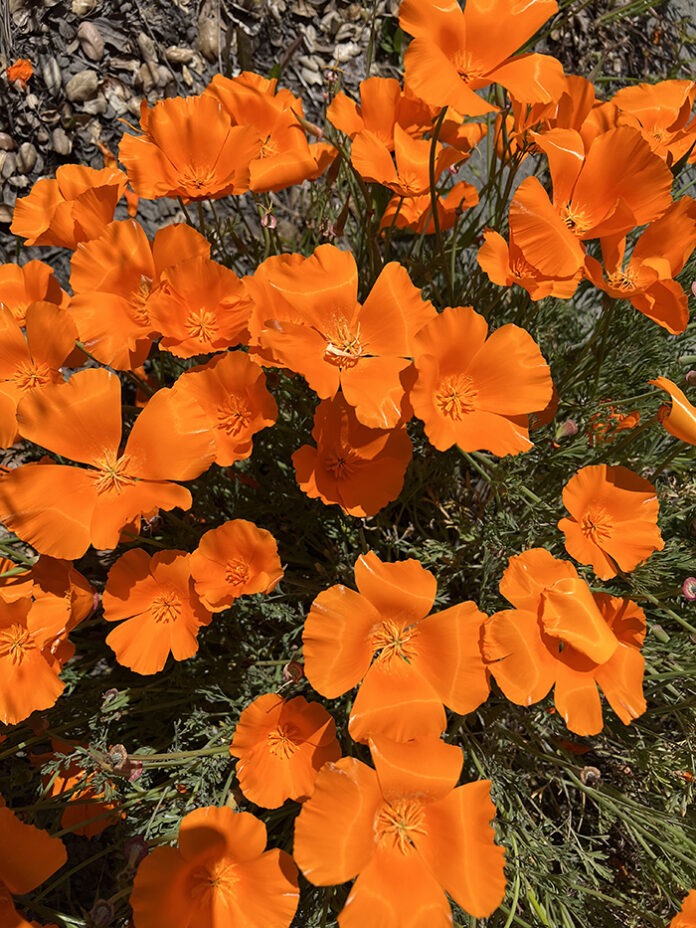Spring is here. California’s green hills are flashing their colors, notably California’s orange poppy (Eschscholzia californica), also called California sunlight or cup of gold.
California’s heavy rains this year will likely create a “super bloom.” This occurs when deserts transform long dormant seeds to create a new crop of plants—many colorful flowers that rarely bloom.
In desert environments, a plant’s reproductive strategy may include dropping seeds which lie dormant for years, even decades. Sufficient rainfall triggers seeds to sprout when there is enough water to see them become a mature plant. Hence, in years with abundant rain, barren desert landscapes go from sand brown to colorscapes of pink, purple, orange, blue and white.
The Antelope Valley California Poppy Reserve is a spectacular place to see this flower. North of LA County, the reserve has 1,745 acres seemingly covered in orange blooms in spring.
California State Parks’ website even has a PoppyCam for viewing the bloom in Antelope Valley. To find information on this year’s super bloom, get started here: parks.ca.gov/?page_id=30077.
Prior super blooms in California occurred in 2005, 2017 and 2019. This year’s super bloom is anticipated to be one of the best. Enjoy!
Fun facts: Poppies are native to America and Mexico. Spanish settlers saw vast hills of poppies when they settled California. Sailing ships were guided along the coast by bright orange hillsides.
In 1903, poppies were designated California’s official state flower. This flower symbolizes love, success, prosperity and glad tidings to others.
Poppies have four petals. The petals close nightly and open with morning sun. Cloudy days can keep poppy flowers closed. Requiring full sun, they do best in well-drained soil. They are both heat and drought tolerant.
Poppies are perennial, meaning they emerge year after year from one planting. The petals are edible and make a lovely decorative garnish.
Native Americans harvested poppies for medicinal purposes. All parts of the plant are, reportedly, mildly psychoactive with sedative effects. Tincture of poppy can be a useful sleep aid; however, the tincture is very bitter, an under-appreciated taste in a Standard American Diet (SAD – pun intended!).
The California poppy has no opiates, receiving its medicinal properties from other alkaloid compounds.








